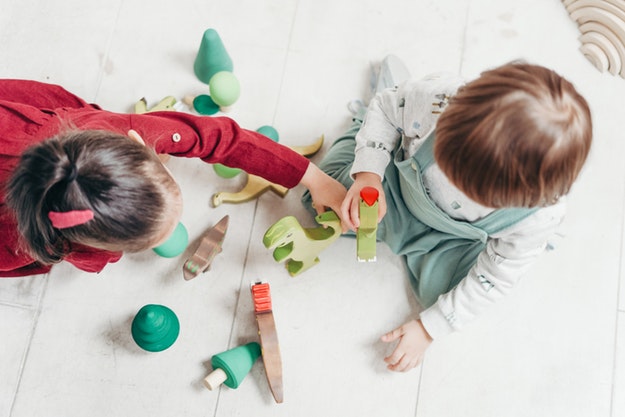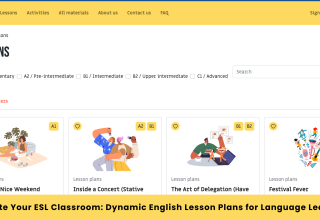Every family wants there child to receive an early learning environment for mind and social growth. There are many other reasons too, that encourage parents to choose early schooling for their children. Some parents have to work for their jobs and can’t take care of their children. On the other side, some parents want to give a professional and high-quality growth environment which is not possible at home. It is true that younger children’s prior growth is at home in front of their parents. But the kids early learning center also assists in boosting up critical thinking and learning for children at a very early age.
Many people ignore the facts and benefits of early childhood programs and find them underwhelming. However, the studies and researches have already proved the extensive benefits of early education programs and their influence on children’s future. Those parents who provide their children with limited options are unaware of the active components that play a great role in their child’s personality. However, early childhood education is the only program that engages and participates in the mental growth of children with bright ideas.
Let’s discuss some core components of early childhood education that add weights to the children’s learning as well as socialization performance;
Social Interactions
Interaction is a major component of early childhood education. The teacher interaction with children is crucial for social and mental growth. It is the well-known fact that the things learned by children at an early age are more impactful for the future. Moreover, these interactions are made possible by well-experienced and professional teachers who know the growth element of the children. These teachers can assist in tailoring the experience by promoting an environment that is essential for the children.
The skillful teachers use the responsive and understandable language that is intelligible for the younger children. Still, the teachers have to adjust their communication with the children to comfort them in a new environment. The children are not the same among the individual and require special attention at the start. However, welcoming and appreciating them for the interactions with other fellows foster their motivation for socialization.
On the other side, early childhood education act as proactive training on how to interact in a different environment. The teachers conduct different activities to solve problems in a group. This way the children can interact with each other with the challenge to perform better.
Effective Environment
Children demand an effective and interactive environment. The younger children need to touch and interact with different things to learn about their surroundings. On the other side, there is no other way that can increase the interests of the children. Their engagement with the appropriate environment objects increases their trust and connectivity with the program. Of course, their primary interaction and trust are with the parents.
But early childhood education assists them to find different ways to communicate and engage with the surroundings in physical ways. For instance, preschoolers or toddlers are more inclined towards toys and plays. These are the essential learning objects that impact the mind of the children.
The age-appropriate objects for the learning environment encourage them to understand the real-life activities. For example, a kitchen plays with toys can broaden their minds to solve different problems. These objects must be easily accessible and safe for the children. Because they will be later helping them to increase their mindful abilities and offer them opportunities in the future. Moreover, the environment to promote exercise is also essential for the good health of the children. Critical thinking and education for respect promote children’s literacy skills.
Learning Structure
The program’s operative structures also come into play for effective early childhood education. It is not about the adults and the teachers will have to deal with the children. The programs require a leader to conduct effective instructions to provide the children with all kinds of requisite resources. Moreover, the leader also manages all the overall operations of business too. If the business is big and complex then multiple leaders can assist in paving the ways of program’s strategies.
On the other side, an effective learning structure can be promoted by experienced staff. As discussed earlier, every child requires attention, and only experienced personnel know how to provide them. Plus, the learning environment also adds value to the program’s structure. At first, the teachers will have to approach each child. However, the successful establishment of the learning environment with all the essentials resources can reflect the children learning and interaction rate.
Literacy Development
Childhood education provides a variety of literacy skills that are vital for children’s growth. Early childhood education trains children with the important skills that are the foundation for the schools. Many people put their children in the rush of learning environment, which is not the right thing to do. However, early childhood programs train children with the requisite skills for the schools. These skills increase their abilities to grasps the school’s learning environment and ease them for the studies. Moreover, it is also found out that children with early education are more versatile for schools rather than the fresh ones.
Focus on Learning
Nowadays many parents promote their children to schools at an early age. These children are more vulnerable to lose interest and cognitive mental development. It is not the fact that your child will waste time on playing and useless activities. However, these activities also exercise their minds to learn and adapt to many beneficial skills. Instead of wasting the resource and important growth time of the children, considering the facts of early childhood education can provide various benefits. If they learn math in an engaging and interactive way at a young age then they’ll be more prepared for psle math later on in childhood.
The principles of quality education layout many opportunities for the children that influence on their minds. However, early education lays a foundation for confidence, behavior, and learning for the future. The activities enhance their skills to deal with different problems effectively and control their emotions.
Daily Schedule
The early childhood education promotes the daily schedule for different activities among the children. These schedules give them a sense and importance of time. Moreover, the time deadlines advance their abilities to manage tighter competitions. The daily schedules make them aware of the facts of waking up early and when to go to bed. This awareness encourages cognitive growth and enables them to anticipate what will be coming afterward.
Conclusion
With all the facts, it is clearly understandable how much early education is important for younger children. The learning and social qualities of early childhood education can benefit the future of your child in many ways. In the end, considering the facts of the future, it is important that you choose the right and sustainable environment for them.













